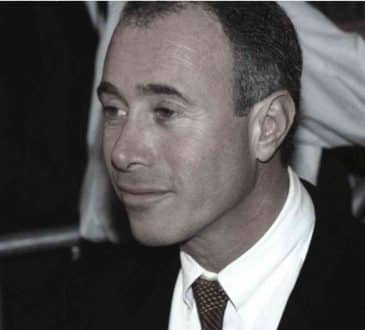The Must-Have Leadership Skill in a Covid-19 World and Beyond

The best leaders always care about their people and act like it. Treating others with dignity and respect, rather than proverbial cogs in the wheel, has been repeatedly proven to engender trust, loyalty, and productivity. Many leaders give lip service to valuing their employees, both collectively and as individuals. But to level-up your own performance – which is more critical than ever given the challenges facing most organizations in the Covid-19 world – you need to know what this means in practice. It’s called mindful leadership, and while it may sound warm and fuzzy, it’s anything but, as decades of research makes this clear.
Mindfulness is a big buzzword in leadership circles these days, but it can easily be misunderstood. According to scientist, researcher, and pioneer in the field of research-based mindfulness studies Jon Kabat-Zinn, mindfulness means paying attention in a particular way: on purpose, in the present moment, and non-judgmentally. In other words, it’s something we do with our attention. We intentionally notice what is happening as it is happening, with a sense of openness and curiosity. If this sounds simple, it is. But simple does not mean easy.
Kabat-Zinn began his work with burned-out physicians at UMass Medical Center. His results were pretty astounding: when stressed-out doctors practiced mindfulness over an eight-week period, their reported stress-levels sharply declined, and their patient outcomes dramatically increased. His findings have been replicated again and again over the past several decades. Study after study makes clear that when leaders practice mindfulness, they feel less stressed and produce better results. Then, naturally, they are able to show up more fully for their teams, who in turn generate better results as well.
The proven rewards of mindfulness practice are many. Those who practice on a regular basis are better able to manage their stress. Therefore, they report higher levels of happiness, consistent feelings of balance and optimism, and an ability to get more work done in less time. In addition, the science is clear that practitioners experience better cardiovascular health, better sleep patterns, improved immune function, reduced hypertension, decreased chronic pain, and decreased inflammation in their bodies.
To practice high-level mindfulness at work, leaders must start with practicing mindfulness in their own lives. There are two ways to do so: classic mindfulness-based meditation and cultivating mindful awareness throughout the day. The combination of the two is the most potent, but leaders can become mindful without any kind of formal sitting practice. Here’s how.
- Set an intention.
Leaders must consciously choose their “why.” Perhaps you want to practice mindfulness to be more effective at work or at home, to manage your stress, or to inspire your people to show up with commitment each and every day. Get clear on your intention, write it down, and review it on a regular basis. Research shows that the practice of setting an intention to be happier, for example, increases the levels of the feel-good neurochemical dopamine in the brain, which immediately induces better moods. Regularly reviewing your intention has also been shown to help keep your behaviors consistent and aligned with your stated intention. - Pay attention.
Harnessing attention to the present moment is a skill that takes repeated practice. Our minds naturally wander away from whatever we are engaged in, often to ruminate about the past or worry about the future. A 2010 Harvard University study confirmed that our minds tend to wander nearly fifty percent of the time. It concluded that the more we engage in mind wandering – which is the opposite of paying attention in the present moment – the unhappier we are.One of the quickest ways to build the present-moment-awareness muscle is to stop multitasking. While so many of us think we are getting more done by multitasking, the research shows we are wrong. Our brains are not designed to multitask. Multitasking results in more errors, which ends up wasting time. It also releases the neurochemical cortisol into our blood stream, initiating the stress response and disabling our capacity to produce our best work.Make a dedicated effort to single-task. Do one thing at a time. When speaking with someone, give him or her your full attention. Be fully engaged in the interaction, without even considering what you need to do next. With consistent practice, being present will become your natural way of relating to the world. - Be kind and curious.
All mindfulness-based endeavors must be approached with an attitude of kindness and curiosity. This might sound soft and even cringe-worthy. But once again, the research tells another story. Adding a layer of kindness to the practice of mindfulness has been shown to increase measurable productivity as well as a sense of well-being. In other words, pay attention, but don’t judge. Imagine yourself in the shoes of another. When you do this, you activate the parasympathetic nervous system, which then releases the feel-good hormone serotonin into your bloodstream.Practicing these three things is what it means to lead with respect. Your mindfulness practice can help you develop the capacity to act in line with your intention, to pay attention in the present moment, and to care about those whom you lead. This, in turn, communicates to your workforce that they are valued, which primes them to do their best work, just as you are better equipped to do yours.
Written by Sindy Warren. Have you read?
World’s Best Countries For Entrepreneurship.
World’s Trendiest Countries.
World’s Best Countries For Investment In E-commerce And Digital Sector.
World’s Best Countries In Which To Start A Career.
Add CEOWORLD magazine to your Google News feed.
Follow CEOWORLD magazine headlines on: Google News, LinkedIn, Twitter, and Facebook.
This report/news/ranking/statistics has been prepared only for general guidance on matters of interest and does not constitute professional advice. You should not act upon the information contained in this publication without obtaining specific professional advice. No representation or warranty (express or implied) is given as to the accuracy or completeness of the information contained in this publication, and, to the extent permitted by law, CEOWORLD magazine does not accept or assume any liability, responsibility or duty of care for any consequences of you or anyone else acting, or refraining to act, in reliance on the information contained in this publication or for any decision based on it.
Copyright 2024 The CEOWORLD magazine. All rights reserved. This material (and any extract from it) must not be copied, redistributed or placed on any website, without CEOWORLD magazine' prior written consent. For media queries, please contact: info@ceoworld.biz
SUBSCRIBE NEWSLETTER









